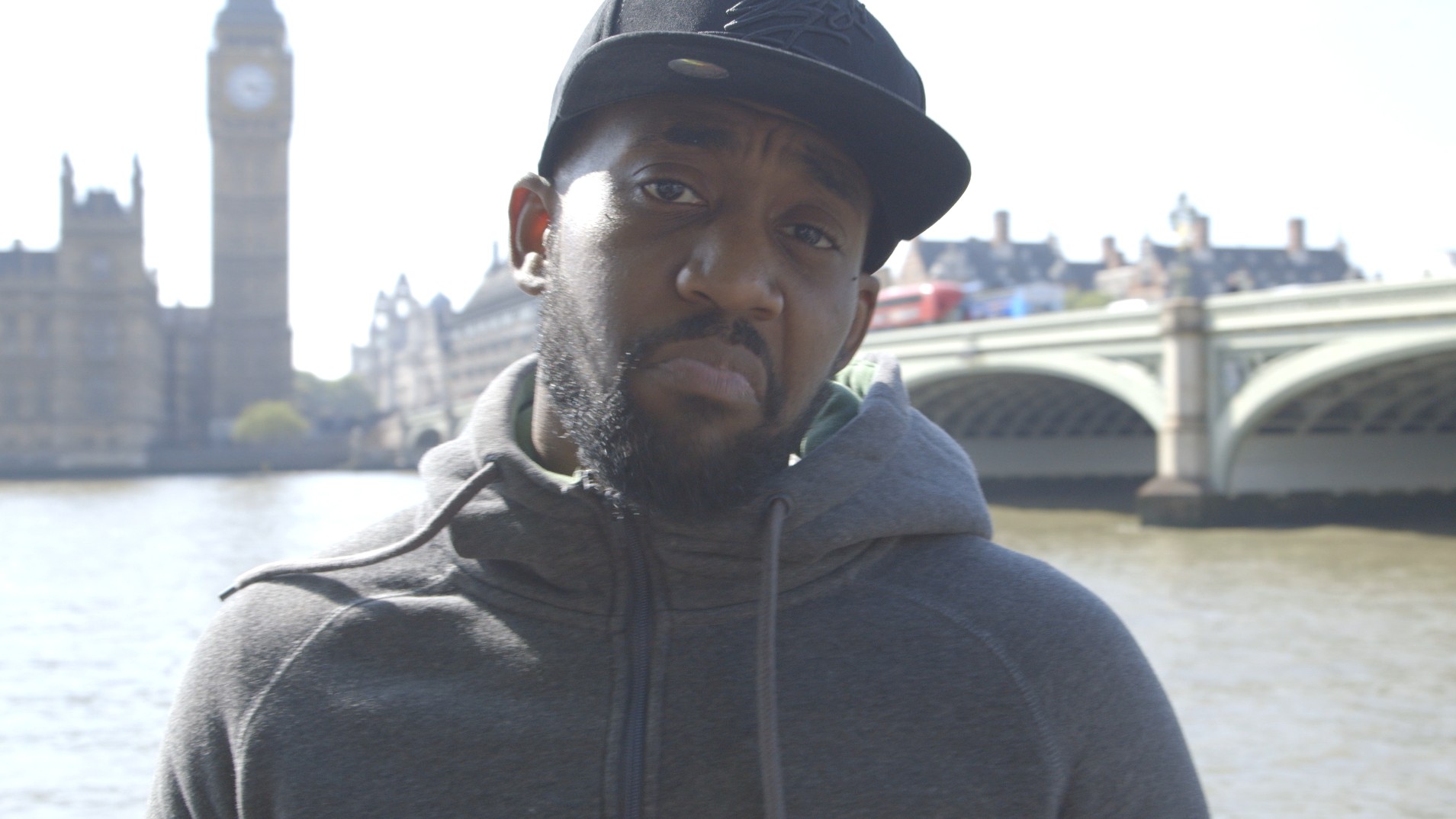The innocent doorstepping, glad-handing, vote-and-hope democracy of the past has fast become a relic of simpler times. If a shadowy psy-ops operation isn't allegedly programming your voting behaviour with hyper-targeted Facebook ads, bots and state-sponsored trolls are spreading partisan tweets and "the Russians" are leaking caches of incriminating political party emails in a bid to affect public opinion.It's now taken as read that Trump's presidency owes much to Kremlin interference, if not directly then by proxy. Emmanuel Macron won last month's French presidential election in spite of a timely email leak contaminated with disinformation.This is the reality of modern day democracy in an era of cyber subterfuge and manipulation.Except in Britain, where the lead-up to the general election has been an altogether more temperate affair. So far, the biggest talking point has been our prime minister's TV debate no-show. It's all predictably parochial.Josh Smith, a researcher at the Centre for Analysis of Social Media at Demos, says that unlike the US and French elections, in which troll farms and botnets were deployed en masse, there has been little evidence of bot intrusion related to the UK election; and where algorithms are churning out #GE2017 tweets, they're seeing little engagement from real-life users, who in this instance are less polarised."What both [the US and French elections] had was a real focus for the far-right. There was an absolute agreement that they were going to get Trump into power, and there was a concerted effort to make that happen. In this election, it's much hazier," says Smith. "After Nigel Farage resigned from UKIP there isn't a candidate for these cyber-savvy far-right supporters to rally around. There isn't a single candidate for the trolls." However, he adds, there is activity – what appear to be genuine accounts sharing biased, and often highly questionable, articles published on Westmonster and Breitbart on the right, and on The Canary to the left.
WATCH: VICE's 2017 UK Election Road Trip – The Things Nobody Is Talking About
A difficulty of assessing both the prevalence and provenance of botnets and state-sponsored trolls is first identifying them and, secondly, accurately tracing their origins. Cyber hacks are similarly difficult to trail. Despite often being covered in Russian fingerprints, it is not always so clear-cut.A source with responsibility for a cyber awareness programme at one of Silicon Valley's tech majors, who asked not to be named, says: "What we've seen is that it's non-state actors that are the most sophisticated threats in this space, which defies conventional wisdom. State actors can be a little clumsy, especially if they're not launching a massive operation. It's very difficult in the contemporary landscape of digital conflict and crime to tell whether someone is acting on behalf of the state's interests. The methodology that a lot of states are using is having one or two degrees of separation between the people launching the attacks and the national security apparatus." One cybersecurity firm that has connected the dots of recent attacks is Trend Micro. Back in April, prior to Macron voicing concerns that his staff's email accounts were being targeted, the cyber firm identified the registration of a number of phishy domains that could be used to dupe his campaign into giving up login details. Then came an email leak just two days prior to the vote.Trend Micro, which stops short of laying blame at the door of specific nations, keeps a constant watch on the cyber ops group Pawn Storm, variously known as Fancy Bear, APT28, Sednit, Sofacy and STRONTIUM, and long suspected of having roots in the GRU, Russia's foreign military intelligence agency.As of mid-May, Trend Micro had not seen any suspicious domain registration activity that could be associated with the UK election, says Rik Ferguson, global vice president of security research at the cybersecurity firm. "The reason for that could be many and varied, but to many the situation in the UK seems like a foregone conclusion. Everyone's saying how the will of the people must be respected. If there's a group that's aligned with Russian state interests that's getting involved, then maybe they don't see much payback from spending their time focusing on the UK at the moment."Last month the National Cyber Security Centre, an arm of GCHQ, issued guidance for election candidates. It said that a number of sitting MPs had been phished prior to parliament being dissolved, and warned candidates to be vigilant. A spokesperson for the NCSC, who wouldn't be drawn on the scale of these attacks, told me there were fewer than ten – and that these occurred prior to Theresa May calling the snap election, rather than being a spike after the fact. Essentially, the Centre was fulfilling its remit of raising cyber awareness in political circles and had tactfully hooked it onto the election.
WATCH: Chat Shit Get Elected – What Are You Really Voting For in the UK Election?
That's not to say the UK government has been sounding false alarms or that there's no reason for extreme caution. In 2015, prior to the DNC leak that rocked the US election, GCHQ foiled an attempted attack by Fancy Bear on BBC's UK election coverage, shortly after the hacking group successfully crashed a number of French TV channels.And as recently as last week a video produced by the news site Vox that delivered a searing indictment of Ramzan Kadyrov, the Chechen leader and longtime Putin ally, saw a spike in traffic from Russia. The offending video was bulk-spammed with dislikes and Vox received a barrage of privacy complaints as efforts were made to have the report removed from YouTube. Clearly, the Kremlin is primed to strike when it feels it's necessary.But Russia has little to gain from trying to influence the outcome of the UK's impending election. Both candidates are promising to deliver what the Kremlin wants – Brexit and the destabilisation of Europe. The only party that is against following through on the results of the referendum is the Lib Dems. "I think Putin would like the Labour Party led by Corbyn to win the election," says Dr Andrew Foxall, a director of the Russia Studies Centre at the Henry Jackson Society think-tank. "Not only does he support Brexit, he advocates an isolationist foreign policy, he has said in the past that he would personally like to make cuts to the UK defence budget and is in favour of nuclear disarmament, although admittedly a commitment to Trident made it to the party's manifesto. So Putin has more to gain from the Labour Party winning, but he's also to some extent a rational actor, and I think he would rather stick than twist."In previous years, when Russia was living high on the hog of sky-high oil prices, its strategy was to raise its standing relative to the West, says Foxall. Nowadays, with oil trading for a relative pittance and the country's economy looking comparatively anaemic, the strategy has pivoted. One obvious criticism of Russia is that it doesn't have a functioning democracy, that its democratic institutions are a farce. Today, Putin is attempting to pull the West down to his level. "The Kremlin's tactics in a number of countries has been simply to undermine the public's faith in democracy," says Foxall. "At this stage, if we see any Russian interference, that's what it will be."If Fancy Bear is indeed sitting on a mass of embarrassing emails it has already successfully phished, don't expect their imminent release to be motivated by a Corbyn or May victory. The Brexit vote has already played directly into Russia's hands. There's little left to gain other than making Britain look stupid. And we are doing a good enough job of that ourselves.More on VICE:A Wikipedian Explains How Wikipedia Stays Reliable in the Fake News EraHere's How Much 'Real News' You Can Get from Celebrity Twitter AloneHow to Prevent Fake News from Spreading on Social Media
Advertisement
Advertisement
WATCH: VICE's 2017 UK Election Road Trip – The Things Nobody Is Talking About

A difficulty of assessing both the prevalence and provenance of botnets and state-sponsored trolls is first identifying them and, secondly, accurately tracing their origins. Cyber hacks are similarly difficult to trail. Despite often being covered in Russian fingerprints, it is not always so clear-cut.A source with responsibility for a cyber awareness programme at one of Silicon Valley's tech majors, who asked not to be named, says: "What we've seen is that it's non-state actors that are the most sophisticated threats in this space, which defies conventional wisdom. State actors can be a little clumsy, especially if they're not launching a massive operation. It's very difficult in the contemporary landscape of digital conflict and crime to tell whether someone is acting on behalf of the state's interests. The methodology that a lot of states are using is having one or two degrees of separation between the people launching the attacks and the national security apparatus." One cybersecurity firm that has connected the dots of recent attacks is Trend Micro. Back in April, prior to Macron voicing concerns that his staff's email accounts were being targeted, the cyber firm identified the registration of a number of phishy domains that could be used to dupe his campaign into giving up login details. Then came an email leak just two days prior to the vote.
Advertisement
Advertisement
WATCH: Chat Shit Get Elected – What Are You Really Voting For in the UK Election?

That's not to say the UK government has been sounding false alarms or that there's no reason for extreme caution. In 2015, prior to the DNC leak that rocked the US election, GCHQ foiled an attempted attack by Fancy Bear on BBC's UK election coverage, shortly after the hacking group successfully crashed a number of French TV channels.And as recently as last week a video produced by the news site Vox that delivered a searing indictment of Ramzan Kadyrov, the Chechen leader and longtime Putin ally, saw a spike in traffic from Russia. The offending video was bulk-spammed with dislikes and Vox received a barrage of privacy complaints as efforts were made to have the report removed from YouTube. Clearly, the Kremlin is primed to strike when it feels it's necessary.But Russia has little to gain from trying to influence the outcome of the UK's impending election. Both candidates are promising to deliver what the Kremlin wants – Brexit and the destabilisation of Europe. The only party that is against following through on the results of the referendum is the Lib Dems. "I think Putin would like the Labour Party led by Corbyn to win the election," says Dr Andrew Foxall, a director of the Russia Studies Centre at the Henry Jackson Society think-tank. "Not only does he support Brexit, he advocates an isolationist foreign policy, he has said in the past that he would personally like to make cuts to the UK defence budget and is in favour of nuclear disarmament, although admittedly a commitment to Trident made it to the party's manifesto. So Putin has more to gain from the Labour Party winning, but he's also to some extent a rational actor, and I think he would rather stick than twist."
Advertisement